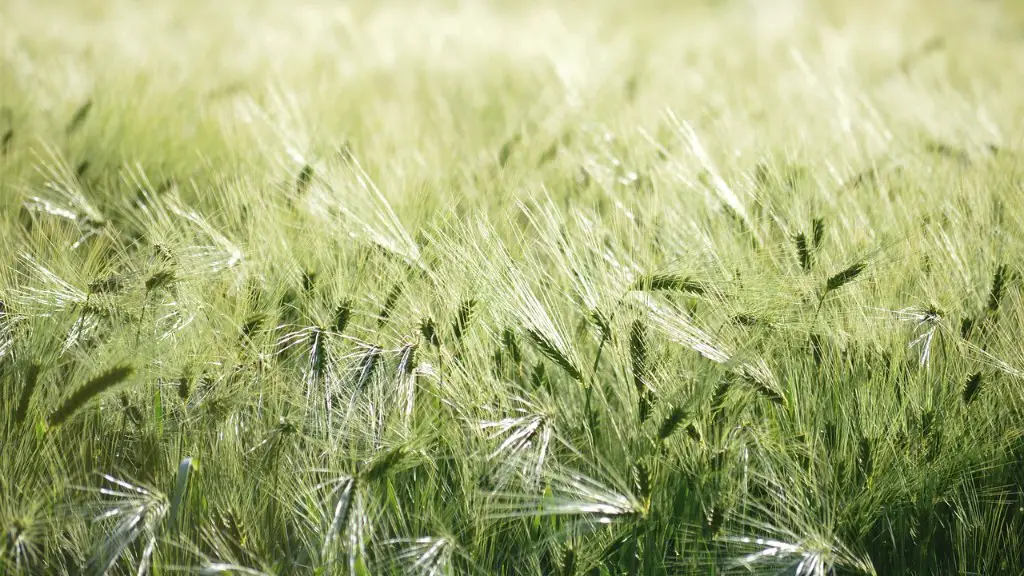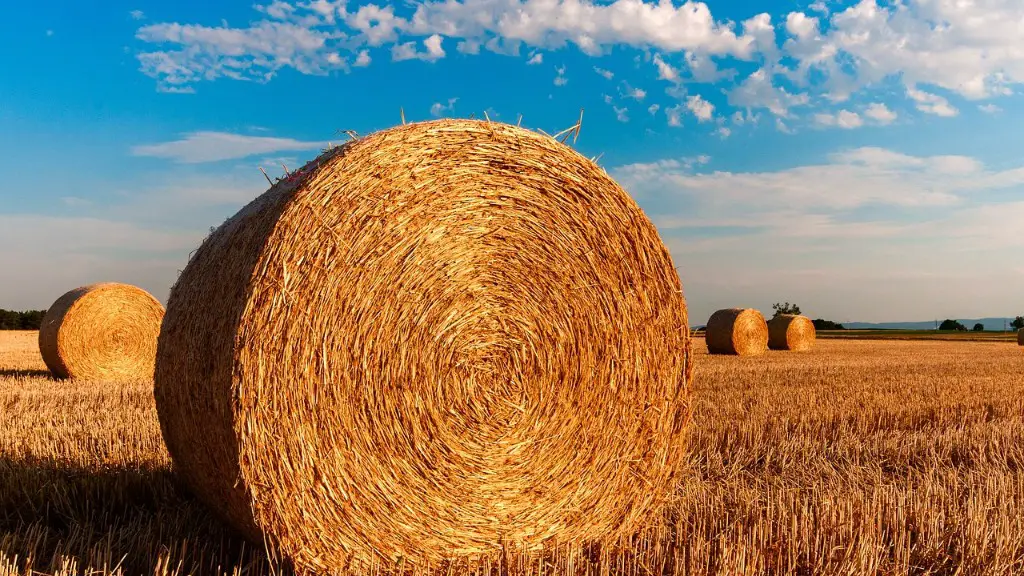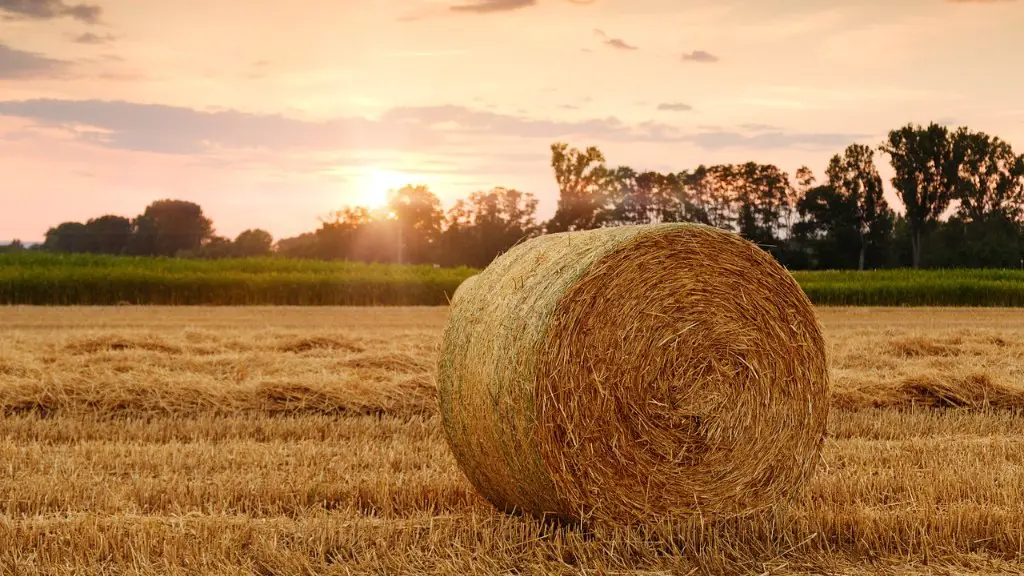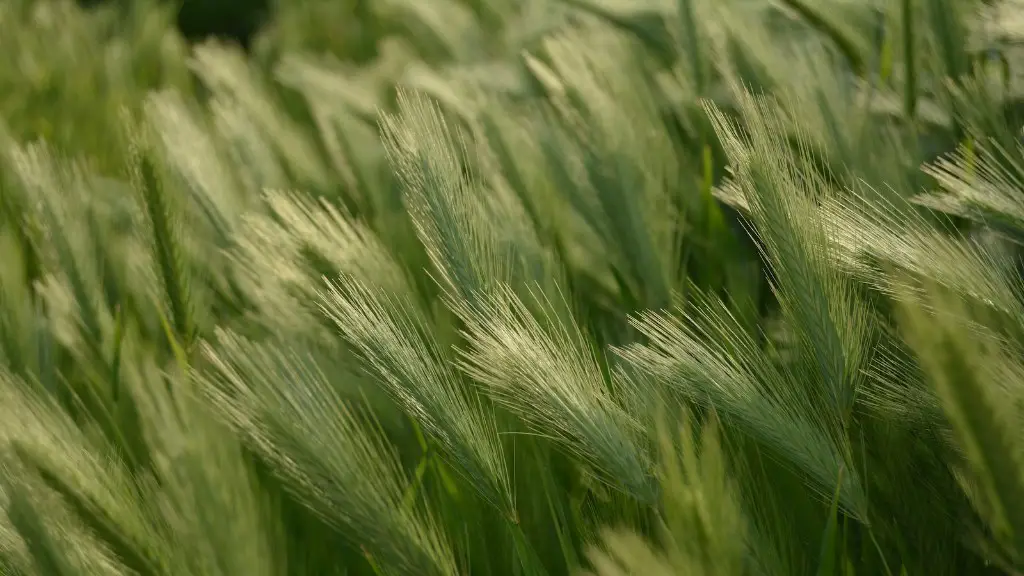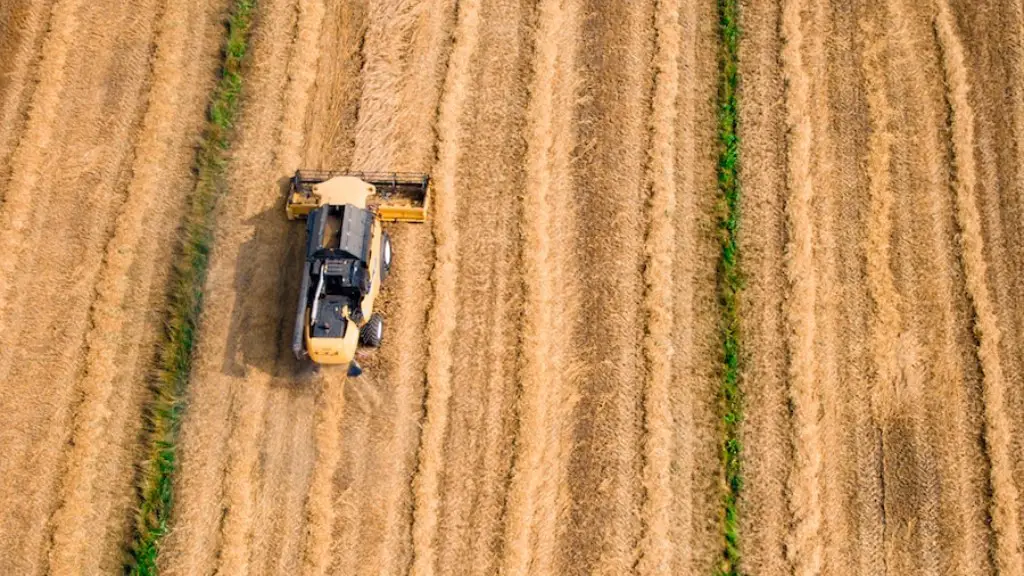Agriculture started because people needed a way to reliably produce food. The first farmers figured out that they could use their hands and simple tools to plant seeds and grow crops. Over time, they developed more sophisticated techniques, like using irrigation and fertilizers, to increase their yields. Today, agriculture is a vital part of the global economy, providing food for billions of people around the world.
There are many theories about why agriculture started, but the most likely explanation is that it was a natural progression from hunting and gathering. As populations grew and food became scarcer, it made sense to start planting crops and domesticating animals so that there would be a reliable food supply. Agriculture allowed people to settle in one place, which led to the development of civilizations.
What was the purpose of agriculture?
Agriculture is the practice of cultivating natural resources to sustain human life and provide economic gain. It combines the creativity, imagination, and skill involved in planting crops and raising animals with modern production methods and new technologies.
Agriculture is vital to the survival of human beings and the economy. It provides us with food, clothing, shelter, and many other necessities. It also creates jobs and supports businesses.
There are many different types of agriculture, such as livestock farming, crop farming, and horticulture. Each type of agriculture has its own set of challenges and opportunities.
Livestock farming is the raising of animals for meat, milk, or other products. It requires knowledge of animal husbandry, feeding, and health care.
Crop farming is the cultivation of plants for food, fuel, or other products. It requires knowledge of soil science, plant science, and agronomy.
Horticulture is the cultivation of fruits, vegetables, flowers, or other plants. It requires knowledge of plant science and horticultural practices.
Agriculture is an essential part of human civilization and will continue to be so for many years to come.
The Zagros Mountain range, which lies at the border between Iran and Iraq, was home to some of the world’s earliest farmers. Sometime around 12,000 years ago, our hunter-gatherer ancestors began trying their hand at farming. The Zagros Mountains provided a perfect location for early farmers, with ample rainfall and ample sunlight. The mountains also protected early farmers from the harsh desert conditions that existed outside the mountains. Early farmers in the Zagros Mountains were able to successfully grow crops and raise livestock, and the region soon became a thriving agricultural center. The Zagros Mountains were also home to early civilizations such as the Sumerians and the Babylonians, and it is thought that the first cities in the world were founded in the Zagros Mountains. Today, the Zagros Mountains are still home to many farmers, and the region is still a major agricultural center.
What is agriculture and when did it start
Agriculture is the most important activity for the majority of people living in developing countries. It is the main source of food and incomes for a large part of the world’s population. Agriculture is also a major source of employment in many countries.
The sector has a significant impact on economic growth and poverty reduction. Agriculture is a major contributor to GDP and employment in most developing countries. The sector also provides a livelihood for a large share of the world’s poorest people.
Agriculture is a complex sector, with a wide range of activities and products. The sector includes crop production, livestock raising, forestry, fisheries and aquaculture. It also includes the processing of agricultural products, and the marketing and distribution of these products.
The sector is subject to a number of risks, including weather-related risks, pests and diseases, and market fluctuations. These risks can have a significant impact on the livelihoods of farmers and other people working in the sector.
The sector is also under pressure from a number of challenges, including climate change, water scarcity, land degradation and the need to increase productivity. Farmers and other people working in the sector need to be able to adapt to these challenges in order to ensure the sector
The Fertile Crescent is thought to be where agriculture first originated, with some of the earliest evidence of farming dating back to around 10,000 BC. The Fertile Crescent was a naturally fertile region with ample rainfall and ample sunlight, making it ideal for farming. The region also had a long growing season, which allowed for crops to mature and be harvested before the onset of winter.
Who first started agriculture?
The Egyptians were among the first peoples to practice agriculture on a large scale. They began doing so in the pre-dynastic period, from the end of the Paleolithic period into the Neolithic period. This took place between around 10,000 BC and 4000 BC.
The discovery of how to plant seeds and domesticate animals changed everything for early humans. No longer did they have to wander in search of food – they could now live in permanent settlements. This was a huge step forward for our ancestors, and it’s something we continue to benefit from today.
Why did agriculture begin independently around the world?
The Holocene epoch began around 10,000 years ago, and it has been suggested that this time period may have been when agriculture began independently. The reason for this is that the Holocene epoch was characterized by warmer, wetter, and higher CO2 conditions, which generally encourage plant growth. This hypothesis was first proposed by Childe in 1951 and further developed by Sage in 1995.
The time period for the beginning of agriculture in the world is about 8000 years old. It is believed that humans started farming about 8000 years ago. Some such areas were found in the north-west of India where humans started growing crops like wheat and barley about 8000 years ago.
What are 3 reasons why agriculture is important
Agriculture is the process of producing food, feed, fiber and other desired products by the cultivation of certain plants and the raising of livestock.
1. It’s the main source of raw materials:
The agricultural sector is the main source of raw materials for many industries, including the food processing, textile and paper industries. In fact, it is estimated that the agricultural sector provides around 20% of the world’s industrial raw materials.
2. It’s important to international trade:
Agricultural products play a vital role in international trade. In 2017, the value of global agricultural exports was estimated at US$1.3 trillion.
3. It plays a big role in a nation’s revenue:
The agricultural sector is a significant contributor to a nation’s GDP. In the United States, the agricultural sector contributes around 1% to the country’s GDP.
4. It provides employment:
The agricultural sector employs a significant proportion of the world’s workforce. It is estimated that around 1.3 billion people, or around 18% of the world’s workforce, are employed in the agricultural sector.
5. It’s crucial to a country’s development:
The agricultural sector is critical to the development
The history of agriculture is the story of humankind’s development and cultivation of processes for producing food, feed, fiber, fuel, and other goods by the systematic raising of plants and animals. Prior to the development of plant cultivation, human beings were hunters and gatherers. The development of agriculture allowed for the domestication of plants and animals, which led to the development of civilizations. Agriculture has played a major role in human history, and continues to do so today.
What are the history of agricultural?
Agriculture began independently in different parts of the world, as people selected and bred plants and animals that were useful to them. The early origins of agriculture are therefore linked to the development of certain species of plants and animals, in different parts of the world.
The first crops were probably cultivated in the Levant (the region encompassing modern-day Israel, Palestine, Lebanon, and Syria), where the climate is suitable for cultivation and where there is a long history of human settlement. The early crops cultivated in this region include wheat, barley, and lentils. Other early crops were probably cultivated in East Asia, where rice was the primary crop.
Over time, the technology of agriculture has changed greatly, with advances in irrigation, crop rotations, and the use of chemical fertilizers and pesticides. However, the fundamental principles of agriculture remain the same: to cultivate plants and animals in order to produce food for human consumption.
When the climate of the world was changing, people observed places where edible plants like seeds, plants, etc were found They started growing their own plants And thus, they become farmers.
Was agriculture invented or discovered
Agriculture was a pivotal moment in human history, separating us from our nomadic ancestors and marking the beginning of civilization as we know it. It allowed us to settle in one place, form communities and build societies. Agriculture also led to the development of metal tools and other technologies that have shaped the world we live in today.
The Agricultural Revolution was a period of increased agricultural productivity that occurred during the 18th and early 19th centuries. There were several contributing factors to this increase in productivity, including the increased availability of farmland, a favorable climate, more livestock, and improved crop yield.
Why was agriculture so important big history?
Agriculture has been a key driver of human development and progress. By enabling people to grow all the food they need in one place, farming has allowed for the development of cities and trade. This, in turn, has led to massive population growth. Agriculture has thus been a key factor in shaping the course of human history.
Agriculture plays a key role in the development of any nation. It provide employment, food, and income opportunities to the people. As a country begins to develop, so does its agriculture. This results in more efficient food production systems that can provide for the growing population. Agriculture is the backbone of the economy and social stability in many underdeveloped countries. Without it, these countries would not be able to progress and improve the quality of life for their citizens.
Warp Up
The Agricultural Revolution was a period of technological advancement and increased crop productivity that occurred during the 18th and early 19th centuries in Europe. It allowed for the widespread cultivation of crops such as wheat and potatoes, which had previously been grown only in small quantities. The Agricultural Revolution also led to the development of new farming techniques, such as crop rotation, and the use of fertilizers.
There are many reasons why agriculture started, but one of the most important was the need to provide food for a growing population. With the development of new tools and techniques, farmers were able to increase their production and meet the demands of a growing population. Today, agriculture is an important part of the global economy, providing food and other products for people around the world.
